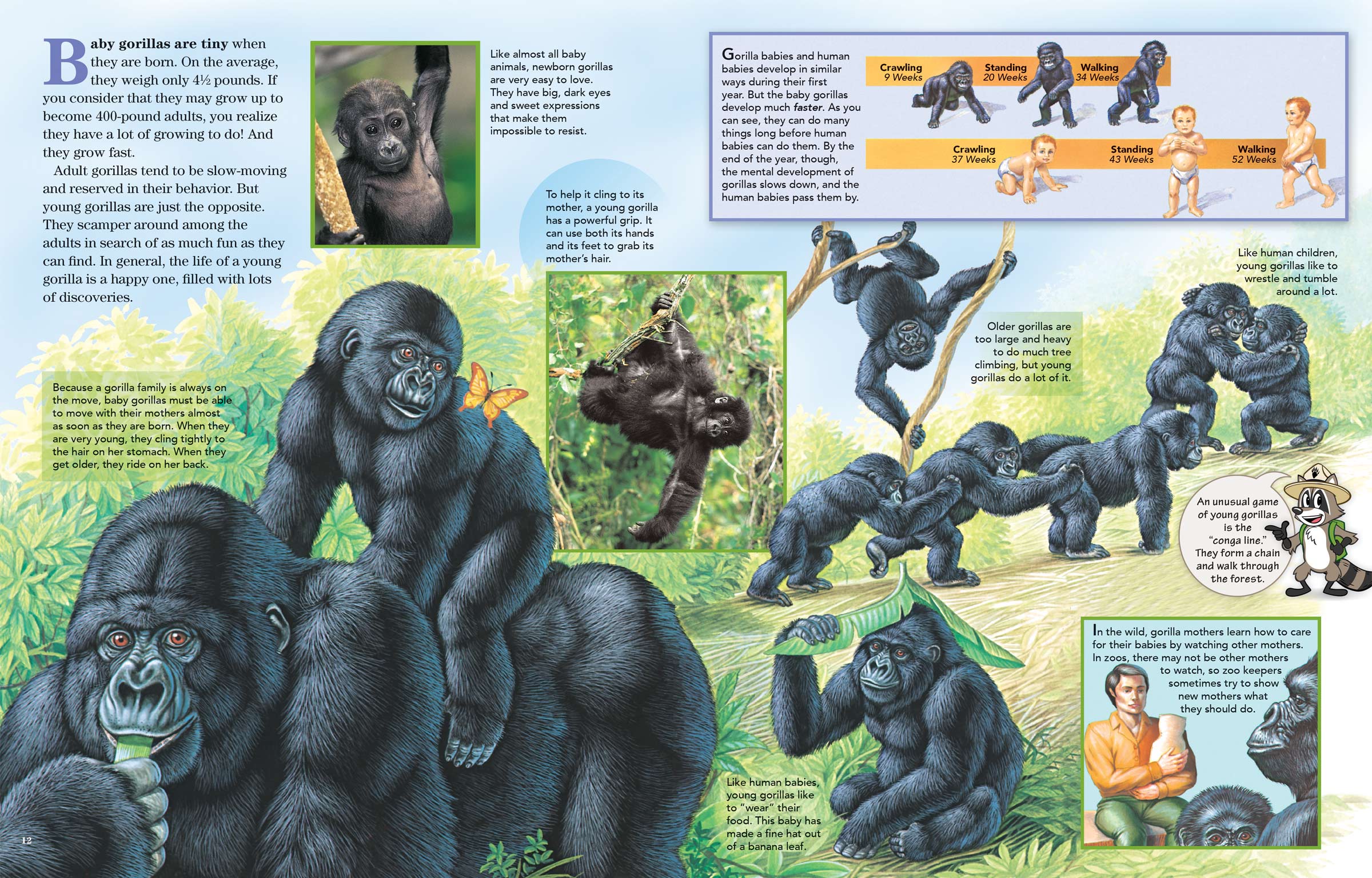
Baby Gorillas
ByBaby gorillas are tiny when they are born. On the average, they weigh only 4½ pounds. If you consider that they may grow up to become 400-pound adults, you realize they have a lot of growing to do! And they grow fast.
Adult gorillas tend to be slow-moving and reserved in their behavior. But young gorillas are just the opposite. They scamper around among the adults in search of as much fun as they can find. In general, the life of a young gorilla is a happy one, filled with lots of discoveries.
Like almost all baby animals, newborn gorillas are very easy to love. They have big, dark eyes and sweet expressions that make them impossible to resist.
To help it cling to its mother, a young gorilla has a powerful grip. It can use both its hands and its feet to grab its mother’s hair.
Because a gorilla family is always on the move, baby gorillas must be able to move with their mothers almost as soon as they are born. When they are very young, they cling tightly to the hair on her stomach. When they get older, they ride on her back.
Gorilla babies and human babies develop in similar ways during their first year. But the baby gorillas develop much faster. As you can see, they can do many things long before human babies can do them. By the end of the year, though, the mental development of gorillas slows down, and the human babies pass them by.
Older gorillas are too large and heavy to do much tree climbing, but young gorillas do a lot of it.
Like human children, young gorillas like to wrestle and tumble around a lot.
An unusual game of young gorillas is the “conga line.” They form a chain and walk through the forest.
Like human babies, young gorillas like to “wear” their food. This baby has made a fine hat out of a banana leaf.
In the wild, gorilla mothers learn how to care for their babies by watching other mothers. In zoos, there may not be other mothers to watch, so zoo keepers sometimes try to show new mothers what they should do.

